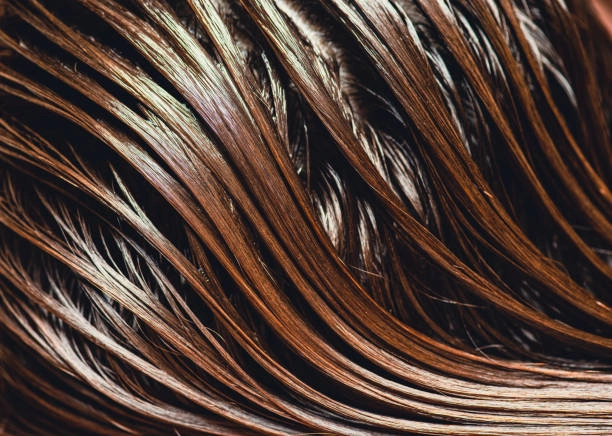Hair Mask vs. Deep Conditioning: Which Treatment Is Right for You?

Healthy hair begins with proper care, and two famous ways for maintaining luscious locks, are hair masks and deep conditioning treatments. While they both aim to nourish and repair hair, they serve slightly different purposes and can be tailored to meet specific hair needs. Here’s a breakdown of the differences between the two.
What is a Hair Mask?
A hair mask is a creamy, thick and intensive treatment created to penetrate the hair shaft and provide deep nourishment. Majority of hair masks are formulated with rich proteins, oils and hydrating ingredients. Hair masks treat various issues, such as dryness, damage, and frizz.
In saying this, they usually require a longer application time – typically around 30 minutes to an hour.
Side note: I have found that most hair experts say one thing or another, 80% recommend following the instructions of the product and 20% say don’t go over more than 30 minutes, so apply at your own risk!
To learn more on how to apply a hair mask, visit Do Hair Masks Really Work or Are They Just Another Gimmick?
Benefits of Hair Masks:
Regular Maintenance: if you have damaged hair, it is recommended that hair masks should be applied every week. If your hair is on the healthier end and you want to maintain it, apply every 3-4 weeks.
Intense Hydration: Hair masks are excellent for providing moisture to dry, brittle hair.
Damage Repair: Ingredients like keratin or proteins can help strengthen and repair damaged strands.
Customizable: There are many types of hair masks available, catering to different hair types and concerns, such as curls or color-treated hair.
DIY: You can also make your very own at home hair mask, you can check out pinterest that have various options or checkout DIY HAIR MASK 🍳 - YouTube
What is Deep Conditioning?
Like hair masks, it has a thick and consistent texture. Deep conditioning however, is a more frequent and lighter treatment. It typically involves applying a conditioner designed to penetrate the hair for a shorter duration, usually around 5 – 15 minutes. This treatment focuses primarily on restoring moisture and smoothness to the hair, often containing emollients and humectants that help maintain hydration.
To learn more about the two terms, visit: Skincare 104: Humectants vs. Emollients - Baylor College of Medicine Blog Network
Benefits of Deep Conditioning:
Regular Maintenance: Deep conditioning can be done weekly or every 3-4 days (depending on your hair requirements)
Smoothness and Shine: Regular use can enhance hair texture, making it softer and shinier.
Easier to Incorporate: This can be easily integrated into your regular washing routine without requiring extra time.
What Are The Key Differences between Hair Masks and Deep Conditioning?
Deep Conditioners: Focuses on addressing common hair concerns like tangles and adding a sleek finish, they work well for many different hair types.
Hair Masks: Designed to address particular problems like split ends, dryness, or dullness, these are especially beneficial for color-treated hair or hair that is extremely dry.
Purpose: Masks are meant for serious issues like extreme dryness or damage, while deep conditioners focus on regular hair care.
Consistency: Hair masks are thicker and more intense than deep conditioners.
Application Time: Masks generally need to stay on your hair longer to be effective, whereas deep conditioners work in a shorter time.
How Often: You can use deep conditioners with each wash, but masks are best used about once a week.
In short, hair masks provide a boost for tough problems, while deep conditioners keep your hair healthy on a daily basis!
When Should You Use Each Treatment?
Hair Mask:
Use a hair mask if your hair is showing signs of damage, such as split ends, breakage, or excessive dryness. It’s also beneficial before a big event or after prolonged sun exposure, swimming in salt water, or chemical treatments.
Deep Conditioning:
Incorporate deep conditioning into your weekly hair care routine to maintain moisture and softness. It’s particularly useful for hair that is generally healthy but could use a bit of extra care.
Hair masks and deep conditioners are both important for keeping your hair healthy, but they help with different things. Think about your hair type and what issues you're dealing with, as well as how much time you have for hair care, to figure out which one to use. For the best results, you can use both: make deep conditioning part of your regular routine and use hair masks when your hair needs some extra help. This way, you can have vibrant, healthy hair that looks and feels great!
FAQs
Are hair masks better than deep conditioners?
A hair mask is meant to repair and deeply moisturize your hair by getting into the hair shaft. Deep conditioners, on the other hand, are lighter and does not penetrate your hair shaft deeply and longer as the hair masks do.
Should you use a hair mask instead of conditioner?
It's not ideal for everyone, especially those with fine hair or a tendency for product buildup.
Can I replace the deep conditioner with a hair mask?
They are not intended to substitute your regular conditioner.
Articles Related:
Helpful Videos:
Some images are generated from: https://www.istockphoto.com/




